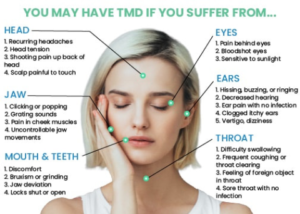
Metoprolol is a commonly prescribed medication used to treat high blood pressure, angina (chest pain), and certain heart conditions. While metoprolol is generally well-tolerated, it may have some potential side effects. It’s important to note that not everyone will experience these side effects, and the severity and frequency can vary from person to person. Here are some of the known side effects associated with metoprolol:

- Fatigue and Dizziness: Some individuals may experience fatigue, tiredness, or dizziness while taking metoprolol. These side effects are usually mild and temporary, especially during the initial stages of treatment.
- Low Blood Pressure: Metoprolol can lower blood pressure, leading to symptoms such as lightheadedness, fainting, or feeling weak. This is more likely to occur if the medication is taken in higher doses or in combination with other blood pressure-lowering medications.
- Slow Heart Rate: Metoprolol can cause a decrease in heart rate. This is usually not a concern for individuals with a healthy heart, but those with pre-existing heart conditions may experience symptoms such as fatigue, shortness of breath, or dizziness.
- Cold Extremities: Some individuals may notice cold hands and feet while taking metoprolol due to the medication’s effect on blood flow and circulation.
- Gastrointestinal Issues: Metoprolol can occasionally cause digestive symptoms, including nausea, stomach discomfort, diarrhea, or constipation. These side effects are usually mild and temporary.
- Sleep Disturbances: Some individuals may experience changes in sleep patterns, such as insomnia or vivid dreams, while taking metoprolol. If sleep disturbances become problematic, it’s advisable to speak with a healthcare professional.
- Sexual Dysfunction: In rare cases, metoprolol may contribute to sexual dysfunction, including decreased libido, difficulty achieving or maintaining an erection (in men), or difficulties with arousal or orgasm (in women). If these issues arise and persist, it’s important to consult a healthcare professional for further evaluation and potential alternative treatment options.
- Allergic Reactions: Although rare, some individuals may develop allergic reactions to metoprolol. Signs of an allergic reaction can include rash, itching, swelling (especially of the face, tongue, or throat), severe dizziness, or difficulty breathing. If any of these symptoms occur, immediate medical attention is necessary.
It’s essential to discuss any concerns or side effects you may be experiencing with your healthcare provider. They can provide guidance, adjust the dosage if necessary, or consider alternative medications if the side effects are severe or intolerable. Do not discontinue metoprolol without consulting your healthcare professional, as abrupt discontinuation can have adverse effects.
As an Amazon Associate we earn from qualifying purchases through some links in our articles.




